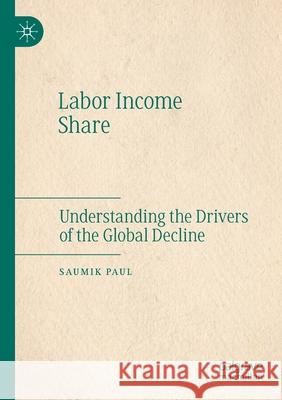Labor Income Share: Understanding the Drivers of the Global Decline » książka
topmenu
Labor Income Share: Understanding the Drivers of the Global Decline
ISBN-13: 9789811568626 / Angielski / Miękka / 2021 / 304 str.
Labor Income Share: Understanding the Drivers of the Global Decline
ISBN-13: 9789811568626 / Angielski / Miękka / 2021 / 304 str.
cena 402,53
(netto: 383,36 VAT: 5%)
Najniższa cena z 30 dni: 385,52
(netto: 383,36 VAT: 5%)
Najniższa cena z 30 dni: 385,52
Termin realizacji zamówienia:
ok. 16-18 dni roboczych.
ok. 16-18 dni roboczych.
Darmowa dostawa!
Kategorie:
Kategorie BISAC:
Wydawca:
Springer Verlag, Singapore
Język:
Angielski
ISBN-13:
9789811568626
Rok wydania:
2021
Ilość stron:
304
Waga:
0.40 kg
Wymiary:
21.01 x 14.81 x 1.73
Oprawa:
Miękka
Wolumenów:
01
Dodatkowe informacje:
Wydanie ilustrowane











